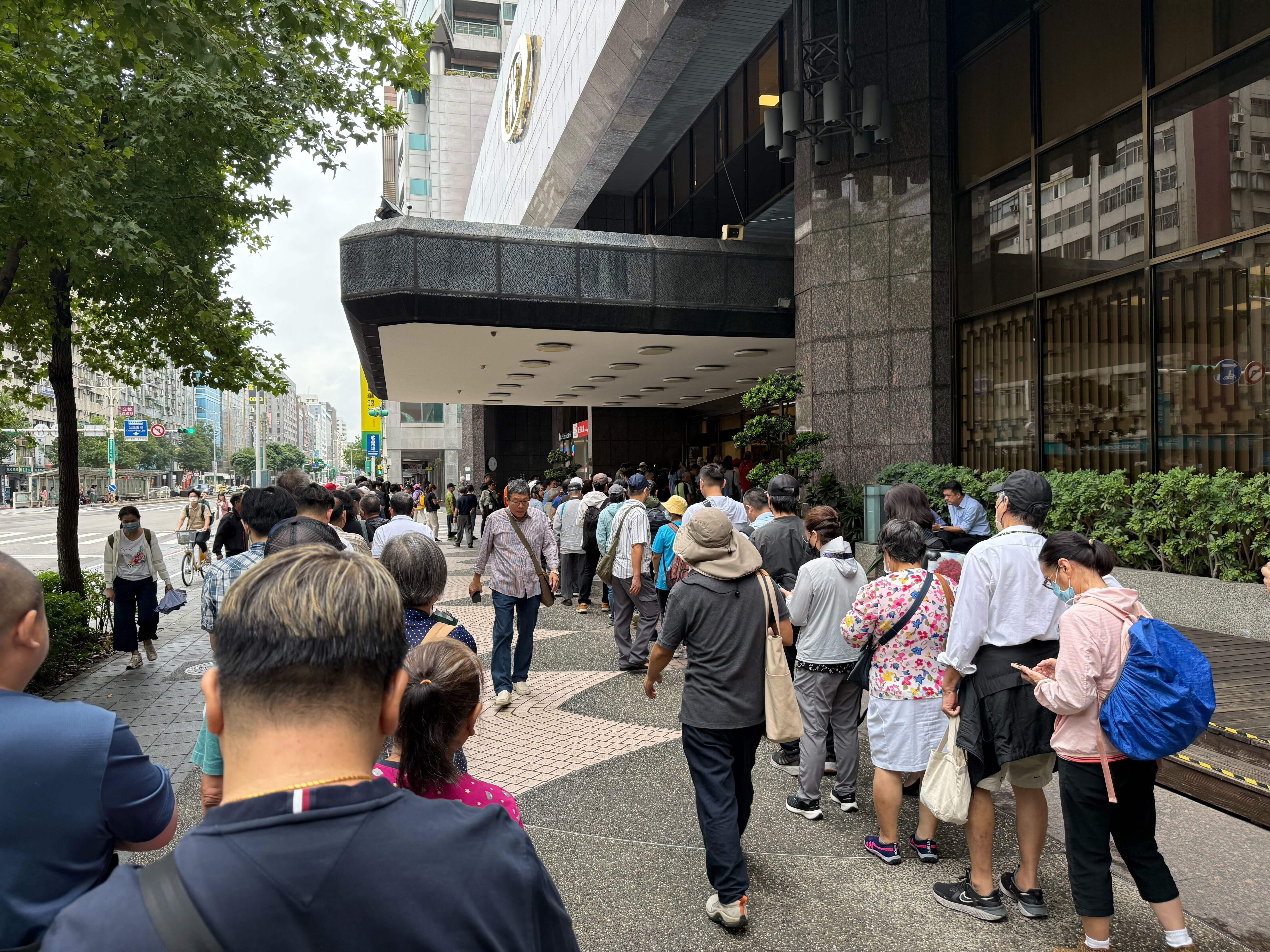The problem of unilateral covenants in Taishin-Shinkong FHCs merger
Author: Chia-heng Seetoo, Senior Counsel
On October 9, 2024, Taishin Financial Holdings Company (“Taishin”) and Shinkong Financial Holdings Company (“Shinkong FHC”) held their respective extraordinary meeting on the same day and approved the proposed merger announced by the respective boards of directors on August 22, 2024. This is the very first friendly merger between two financial holdings companies (FHC) in Taiwan, and if the merger can be approved by regulators, including the Financial Supervisory Commission and the Fair Trade Commission and closed as planned, the post-merger Taishin-Shinkong FHC will become the fourth largest FHC in Taiwan in terms of market cap.

The waiting lines outside the venue of Shinkong FHC October 9, 2024 extraordinary meeting of shareholders (Photo Courtesy: Chia-heng Seetoo)
What makes this deal interesting is the familial root shared by Taishin and Shinkong FHC. The original Shinkong group was founded in early 1950s by Mr. Wu, Ho-Su, Mr. Hung, Wan-Chuan, and Mr. Lin, Teng-Shan, after Wu, Ho-Su took over the business left behind by his Japanese boss after the end of WWII. The scope of the Shinkong group quickly expanded to textile, synthetic fibers, energy, real estate development, department stores (today’s Shinkong Mitsukoshi) and then financial industries (securities, property insurance, and life insurance).
Wu, Ho-Su died in 1986, and his four sons took over different parts of the Shinkong conglomerate group. His eldest son Wu, Tong-Jing took over Shinkong Life Insurance; the third son Wu, Tong-Liang founded Taishin Commercial Bank when the Taiwanese government opened up commercial banking licenses to private sectors in early 1990s, thanks to supports from the Wu family and other local business communities.
When Taiwan passed the FHC law in 2001, Shinkong Life Insurance and Taishin Commercial Bank did not consolidate under the same FHC. Instead, Taishin Commercial Bank formed its own FHC in 2002, and Shinkong Life Insurance along with other less significant financial companies within the Shinkong group formed Shinkong FHC.
In the past two decades, there were several reports that Taishin and Shinkong FHC were in merger discussions, but none were realized until now. It was widely believed that the main reason obstructing the merger was which faction of the Wu family should be in charge of the post-merger FHC, as Tong-Jing and Tong-Liang are both strong-willed businessmen who want total control.
Shinkong FHC has not been performing well in the past decade, and became the only FHC that recorded losses in consecutive years. In the 2023 annual general meeting, some members of the Wu, the Hung, and the Lin families, i.e. descendants of the original founders of the Shinkong group, through the family holding vehicles, successfully initiated a proxy fight to replace the majority of the board of directors. The new board, led by Mr. Mark Wei, who served as leading regulator of the insurance industry in the Ministry of Finance before moving to private sector, and Mr. Chen, Hwai-Chou, a well-seasoned banking industry veteran, quickly turned things around at Shinkong FHC.
At the same time, the merger negotiation between Taishin and Shinkong FHC was moving at a fast pace. Just before Taishin and Shinkong FHC announced the proposed merger, Chinatrust FHC stepped in and announced its intent to acquire up to 51% of Shinkong FHC subject to the regulators’ approvals. After Taishin and Shinkong FHC announced the original proposal on August 22, 2024, which would have a NT$11.3 per share valuation, Chinatrust FHC announced the public tender offer terms, which would give a NT$14.3 per share valuation, and this forced Taishin and Shinkong FHC to renegotiate the share exchange ratio – one common share of Shinkong FHC will now be converted to 0.675 new common shares and 0.175 new Class H preferred shares of Taishin, which more or less matched Chinatrust’s offer.
The Financial Supervisory Commission rejected Chinatrust’s tender offer application on September 19, 2024 and this left the Taishin proposal on the table for Shinkong FHC’s shareholders to decide at the extraordinary general meeting.
There have been quite a few controversies surrounding the extraordinary general meeting of Shinkong FHC. A group of minority shareholders has been claiming that the proposed share exchange ratio materially underestimated the per share value of Shinkong FHC and should have been much higher – Taishin’s final offer is less than Shinkong FHC’s net book value. Others doubt that Shinkong FHC’s current directors failed to disclose their conflict of interests – these directors are nominated by one of Shinkong group founders’ family holding vehicles, and that holding vehicle is controlled by a higher-level vehicle headed by Mrs. Wu, Tong-Liang, thus creating the potential conflict and these nominated directors should have refrained from participating in the board voting.
A much lesser-discussed issue of the proposed merger is the covenants provision in Section 5.1 of the merger agreement. Section 5.1 contains a laundry list of negative covenants binding Shinkong FHC and its subsidiaries, but the entire merger agreement does not contain the same or comparable covenants binding Taishin.
As all seasoned M&A practitioners are well aware, negative covenants in M&A deals are to preserve the “status quo” by demanding the target company only to conduct the ordinary course of business, and not to engage in any act which may materially reduce or even harm the overall value of the target company. In an all-stock merger like the one between Taishin and Shinkong FHC, shareholders of Shinkong FHC will remain as shareholders of the post-merger FHC, therefore it is equally important to Shinkong FHC shareholders that the pre-merger Taishin should also covenant to preserve the “status quo” and not to engage in anything which may harm the value of Taishin. Unilateral covenants are reasonable only if the acquirer is paying cash consideration to the target’s shareholders.
That question was raised during Shinkong FHC’s October 9, 2024 extraordinary general meeting, and it was rather sad to see Shinkong FHC’s current management and its counsel responded that the overall terms of the merger agreement are “fair and equal” between two FHCs, when in fact they are actually not.
Taishin-Shinkong FHC merger once again exposed flaws of Taiwan’s M&A legal framework. Most critically, the substance of directors’ fiduciary duties in M&A transactions under Taiwan laws is not clearly defined, because Taiwanese courts generally lack the ability to fully develop the operating rules through judicial process. There is no Taiwanese court case similar to Revlon under Delaware precedents, meaning M&A parties in Taiwan can write very strict no-shop clause to preclude any third party with higher bid, and which is why Chinatrust can only resort to tender offer. It is also hard to imagine that a unilateral covenants in an all-stock merger can survive the scrutiny of the Delaware Court of Chancery. Last but not least, Taiwan lacks class action or derivative action procedures to challenge the board of directors’ decision-making process.
One thing can be certain: In Taiwan, this will not be the last time we see disgruntled individual investors blasting the management during the shareholders meetings for the M&A transactions they do not like but cannot stop.




Leave a Reply
Want to join the discussion?Feel free to contribute!